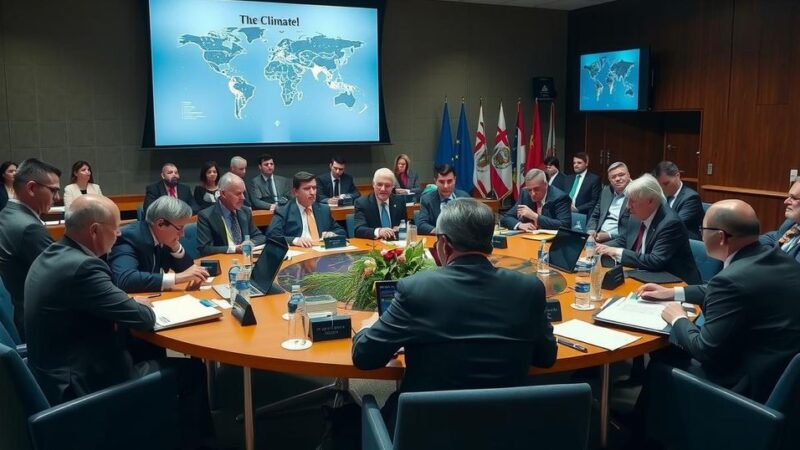In October, Bosnia faced severe flash floods leading to at least 21 fatalities and extensive infrastructural damage. The floods affected central towns including Jablanica and Konjic, overwhelming residents as they slept. The disaster underscores the dangers of climate change, with increased incidents of extreme weather predicted. Humanitarian aid has flooded in from various countries, highlighting the urgency of international support and ongoing efforts to combat climate-related challenges.
In early October, central Bosnia experienced catastrophic flash floods that resulted in the loss of at least 21 lives and left many communities without electricity. The floods, characterized by their sudden onset, also caused significant destruction, including the obliteration of vital infrastructure such as bridges and roads. Cities such as Jablanica, Konjic, Fojnica, and Kreševo were particularly affected, with residential areas submerged overnight as heavy rainfall fell while residents were asleep. Residents recounted the harrowing moments as the floodwaters swept through their homes. Alka Gusic, a local from Donja Jablanica, described her shock, saying, “I thought it was an earthquake,” as the landslide struck. Tragically, she recounted witnessing her nephew being retrieved from the ground, a situation of immense sorrow for the family. Furthermore, Gusic’s son sustained injuries requiring hospitalization due to the floods. Many homes, businesses, and agricultural lands were engulfed by the deluge. In response, the IHH Humanitarian Relief Foundation mobilized to provide essential food and hygiene supplies to affected families. The significance of such flash floods extends beyond immediate disaster response; they highlight the increasing threat posed by climate change. The planet’s rising temperatures contribute to more frequent and severe rainfall events, which scientists predict will lead to a dramatic increase in atmospheric river storms. In relation to this, a NASA study projects a near doubling in the frequency of the most intense storms. Such patterns have resulted in devastating consequences in other regions prone to climate-related disasters, exemplified by Brazil’s recent flooding, which claimed over 140 lives. International support for Bosnia has poured in, with rescue teams from Croatia, Slovenia, Serbia, and Montenegro arriving in the flood-stricken areas. Additional assistance came from countries such as Albania, Türkiye, and Hungary, which collectively contributed over 5,500 shelter supplies. Janez Lenarčič, the European Commissioner for Crisis Management, expressed gratitude for the collaborative efforts, stating, “I thank all the countries that have stepped up to support Bosnia and Herzegovina. This is a strong expression of EU solidarity in a time of great need.” Organizations like United Hands for Relief & Development and Cooperative for Assistance and Relief Everywhere (CARE) are actively seeking donations and providing assistance to vulnerable populations in the region, underscoring the ongoing humanitarian needs and the long-term implications of climate change on natural disaster frequency. It is crucial to elevate awareness surrounding climate issues and advocate for pro-climate policies to mitigate the potential for future disasters.
The occurrence of severe flash floods in Bosnia illustrates the broader implications of climate change, emphasizing an increase in extreme weather events worldwide. With climate change intensifying, regions previously unaccustomed to significant rainfall face new risks of flooding and landslides. Atmospheric rivers, which carry moisture-rich air, are becoming more common and carry the threat of more severe storms. This trend has been documented in various studies indicating that a substantial percentage of the population in the United States and globally remains at risk for such disasters, which are exacerbated by climate change. As a result, emergencies like the recent floods in Bosnia serve not only as immediate crises but also as indicators of the urgent need for climate action.
In summary, the tragic flash floods in central Bosnia have claimed numerous lives and displaced many, accentuating the broader issue of climate-induced disasters. The collective international response demonstrates solidarity and support for the affected communities during their time of need. Moreover, the continuous escalation of climate change poses significant challenges, urging for increased awareness and proactive measures to address environmental degradation. Recognizing the urgent need for comprehensive climate policies is critical in preventing the recurrence of such devastating events in the future.
Original Source: www.thecooldown.com






